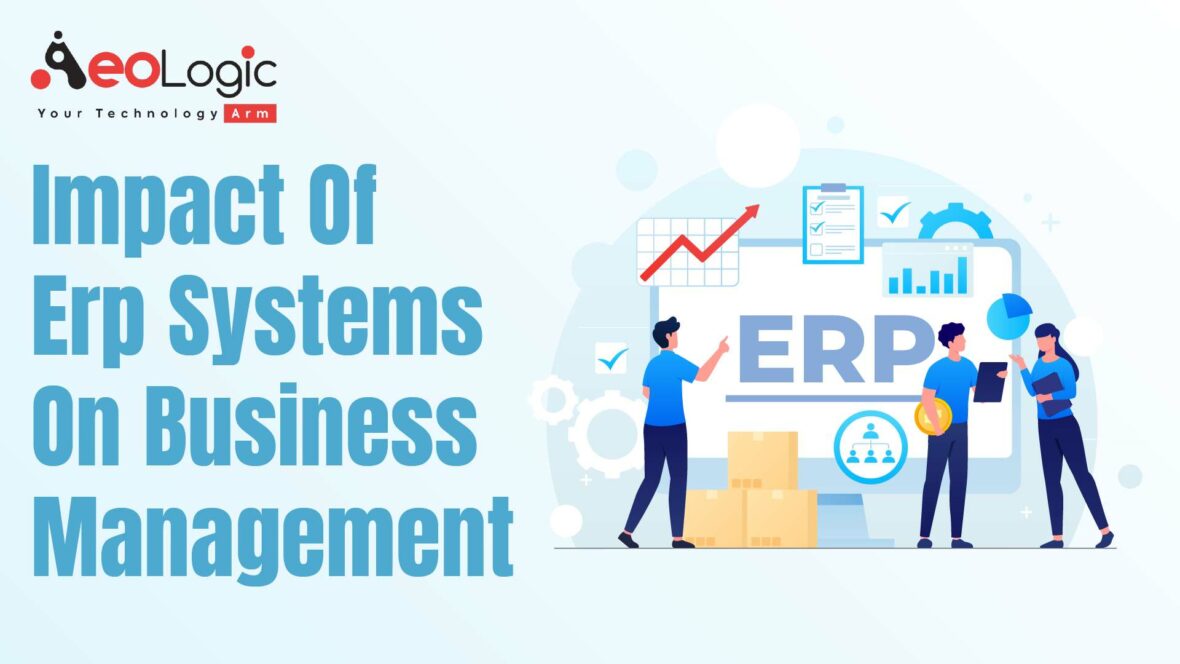Enterprise Resource Planning, often known as ERP, is the unification of several different resources in an organization or business into a single computer system that meets the requirements of all of the various departments of that business or organization. The impact of ERP systems in business management will improve interconnectivity and communication between departments and smoother start-to-finish operations.
Let’s discuss the impact of ERP systems in business management.
Also read: Top Benefits of ERP in Manufacturing Industry
Data Integrity
Having a single repository of information across the business segments is implying that everyone in the company is using the same data. Furthermore, that data is easy to access. This again is implying that there is no more searching through files to look for the right printed report or manually collecting figures from several spreadsheets. The data in ERP systems is retrievable almost instantly and all users access the same information. Hence, making sure of consistency across the business.
Better Internal Performance
The impact of ERP systems in business management helps in improving cross-functional communication. Operations and departments will be acting less like siloed mini-operations in their own right and everyone benefits from greater collaboration and communication. When all departments are using a common IT system there are lesser obstacles to negotiating. As well as projects can be delivered rapidly and accurately. An ERP system amalgamates critical business functions, allowing departments to work together more productively. Thus, contributing to the success of the company as a whole.
Improved Decision-Making
The 360-degree real-time insight will be providing vital information on which leaders can base critical business decisions. This business intelligence is helping with understanding the financial structure of the company. As well as supporting the decision-making process. Therefore, massive amounts of data can be analyzed, making for far faster and more accurate reporting. An ERP system helps in tracking a variety of KPIs, enabling a company to decide if its stock turnover rate is too low. Whether the marketing ROI from the latest campaign is excellent enough, or how opening a new office will affect the bottom line.
Efficient Customer Service
The impact of ERP systems in business management will be improving customer relationships. Since staff is enabled to solve customer inquiries faster and more productively via an ERP. Staff can immediately view details about a customer’s order or credit status. For instance, allowing them quickly to correct issues or initiate a remedial course of action. This produces higher confidence on the part of the customer that the organization is acting in its best interests.
Also read: Role of ERP Software in Manufacturing Industry
Additional Sales
Better customer service brings a higher sense of loyalty, offering the perfect basis for customers to make repeat purchases. An ERP system can also be used to enhance targeting. Detailed customer data will be allowing a company to aim to cross-sell and upsell marketing campaigns to their customers. Customer Relationship Management tools also help in delivering the intelligence that enables salespeople to follow up with prospects who have interacted with the company or responded to marketing campaigns.
Improved Efficiency and Productivity
When you are automating processes, you can get things done faster. This is making for a more streamlined operation, run by more proficient employees. It is informed that 95% of businesses accomplish crucial improvements after using ERP through “decreasing process times, increasing collaboration, and centralizing enterprise data.” This helps in mitigating the time it takes to conduct vital financial processes, like the monthly or year-end close, for instance.
Better Employee Satisfaction
The impact of ERP systems in business management creates an automated process. Thus, with less reliance on manual labor, staff are freed up to consider more challenging and interesting work. This will be increasing motivation and morale within the company and positively affect loyalty, decreasing staff churn rates. While having a happier, more motivated workforce is rarely an objective when it comes to planning an ERP implementation, it is definitely a positive and welcome output.
Reduced Costs
Furthermore, through automation, better decision-making, and improved analytics, ERP systems are bringing about a reduction in a company’s costs. In the warehouse, an ERP will be optimizing stock holding, maximizing the use of space, or improving picking efficiency. Therefore, the finance department can bill customers quickly and track invoices through the system. In order to ensure on-time payments. Project managers can reduce the time that team members are non-billable, augmenting productivity and per-engagement profits.
An ERP system is projected to reduce operational costs by 23% and administrative costs by 22%. This is a huge reduction for any business.
Let’s consider the benefits and disadvantages of ERP.
The advantages of using the ERP are:
- Optimizing business processes.
- Accurate and timely access to reliable data.
- The ability to exchange information between all components of the organization.
- Removing unnecessary operations and data.
- Decrease in time and costs of litigation
Disadvantages of ERP are:
- The installation of the ERP System is expensive. ERP consultants are very expensive and take around 60% of the budget.
- Success depends on the skills, knowledge, and experience of the employees, including education and how to make the system work properly.
- Resistance in sharing internal data between departments can decrease the efficiency of the software.
- The systems can be difficult to use in the beginning.
- Change of staff, companies can employ administrators who are not trained for managing the ERP system of the employing company, proposing modifications in business practices that are not synchronized with the system.
Also read: The Best ERP Solutions for Chemical Manufacturing
Final Thoughts
Are there signs that your organization needs ERP software? What is the impact of ERP systems in business management? To find out, book an appointment and our team of certified consultants can provide a free business consultation with an assessment of the improvements you can expect.
FAQs
How do ERP and management will be affecting business?
ERPs will be allowing businesses to automate their customer service process, which helps in ensuring that each employee is giving customers a consistent experience, and also making sure that back office functions are as streamlined as possible
What areas of a business can ERP systems affect?
ERP systems unify critical business functions like manufacturing, finance, inventory and order management, sales and marketing, customer communication, project management, and human resources.







